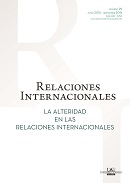Tunisian Women’s representations in the French press during the Jasmin Revolution and the political transition
Keywords:
Tunisian women , Tunisian revolution , political transition , representation , epistemic violenceCopyright (c) 2015 Ester BARRAJÓN FERNÁNDEZ

This work is licensed under a Creative Commons Attribution-NonCommercial-NoDerivatives 4.0 International License.
Abstract
The Western media has devoted a special attention to the Tunisian revolution and the “Arab Spring”. In this context, the French press has particularly focused attention on women. This research paper examines the French media construction of the Tunisian women during the revolution and the political transition. For this purpose, concepts such as the “construction of the other”, “representation” and “epistemic violence”, developed by the postcolonial theories, will serve as a starting point of discussion. First, I start discussing the existence of a diversity of ideological trends within the Tunisian women’s movement with the fall of Ben Ali’s dictatorship; secondly, I analyze the existence of two dynamics within the French press representations of the Tunisian women during the revolution and the transitional period. Therefore, during the revolution, the Tunisian women are represented regardless of their religion, as a component part of a popular movement conducting a modern revolution. During the political transition, the standardization of the Tunisian women as laywomen mobilized against Ennahda and the invisibility of Islamist women point out the epistemic violence made by the French press.





